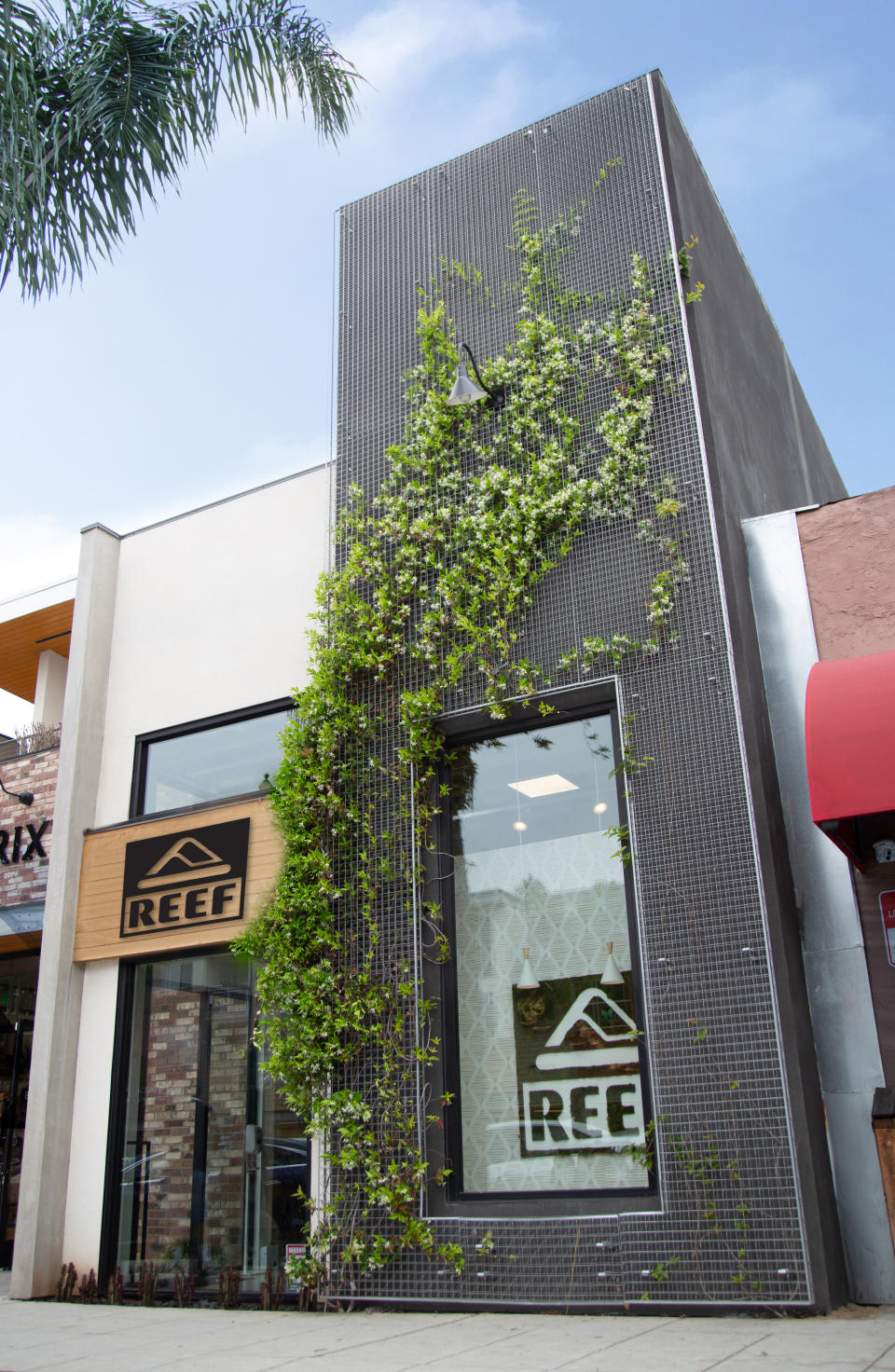Surfs Up for Reef’s First U.S. Store Acting as a Test Lab for Sandals and Shoes

After almost 40 years in business, Reef is finally opening up its first U.S. store not far from its headquarters in Southern California.
The sandal and footwear brand, launched in 1984 by two brothers from Argentina, has built its business on selling its collection to beach-oriented stores that cater to everything surf and sand as well as larger national retailers, helping push Reef’s annual revenues to above $200 million a year.
More from WWD
The company’s first store officially opens Saturday as a 1,000-square-foot pop-up in Encinitas, California, a town with a laid-back beach vibe, not far from the company’s headquarters in Carlsbad, some 35 miles north of San Diego. Later, the space will transition to a permanent store by the end of the year. Reef has a handful of stores overseas through distributorships.
“We took advantage of an opportunity to get closer to the consumer and get something opened in our own backyard,” said Mike Jensen, who became Reef’s president in early 2019.
He said this new store will be like a test lab, where he can fly in product from factories in Southeast Asia and see how it performs. “It gives me a window into the consumer and makes me more confident with my [200] retail partners,” the Reef executive explained, noting that Dick’s Sporting Goods is a big client.

Jensen came on board shortly after The Rockport Group acquired Reef in late 2018 for $139.4 million from VF Corp., which 13 years earlier had bought the sandal company for $187.7 million.
For the last four years, Jensen and his team have been revamping Reef’s array of products, going from primarily beach flip-flops to more stylish sandals and shoes. “We were making an amazing beach flip-flop,” Jensen said. “But what we are also making today are more sophisticated and more premium products from a construction standpoint.”
In 2019, only 10 percent of the company’s merchandise sold for more than $55. Today, about 50 percent of sales have a price tag surpassing $55, Jensen said. That is good given that flip-flop industry sales have seen a 7 percent compounded annual decline since 2016, the Reef executive said.
To keep product fresh, the footwear company every year introduces about 13 new products for women and about seven to eight new styles for men, Jensen said. The company is adding to its selection of closed-toe footwear.
While men’s merchandise used to account for 65 percent to 75 percent of sales, that has declined to 45 percent. Today, women’s merchandise makes up 45 percent of purchases and children’s sales are responsible for 10 percent.
New products include a women’s platform sandal for $75 with leather-like straps that hug your feet or a $65 slide with a chunky lug sole and double straps that go from day to night. For men, there is a flip-flop sandal with a padded liner and built-in bottle opener for $65 or a mesh shoe with a cushiony outsole for $60. “We’ve spent a lot of energy showing consumers how to style our products at the beach and away from the beach,” Jensen said.
Reef has traveled far since Fernando and Santiago Aguerre traveled north from their native Argentina where the brothers spent their youth repairing surfboards in their father’s garage and promoting surf contests. After moving to Southern California in the early 1980s, they launched their business with $4,000 to make a living while surfing.
The Aguerre brothers are still active in the Southern California surf scene and continue living by their Reef slogan: “Life is short. Don’t waste it. Go surfing.”
Best of WWD

